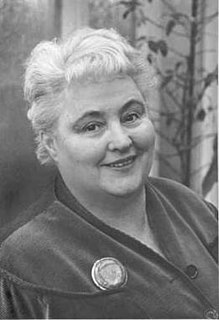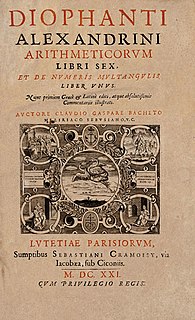A Quote by Margery Allingham
When Mr. William Faraday sat down to write his memoirs after fifty-eight years of blameless inactivity he found the work of inscribing the history of his life almost as tedious as living it had been, and so, possessing a natural invention coupled with a gift for locating the easier path, he began to prevaricate a little upon the second page, working his way up to downright lying on the sixth and subsequent folios.
Related Quotes
His epitaph: This tomb hold Diophantus, Ah, what a marvel! And the tomb tells scientifically the measure of his life. God vouchsafed that he should be a boy for the sixth part of his life; when a twelfth was added, his cheeks acquired a beard; He kindled for him the light of marriage after a seventh, and in the fifth year after his marriage He granted him a son. Alas! late-begotten and miserable child, when he had reached the measure of half his father's life, the chill grave took him. After consoling his grief by this science of numbers for four years, he reached the end of his life.
The master in the art of living makes little distinction between his work and his play, his labor and his leisure, his mind and his body, his information and his recreation, his love and his religion. He hardly knows which is which. He simply pursues his vision of excellence at whatever he does, leaving others to decide whether he is working or playing. To him he's always doing both.
He had thrown himself away, he had lost interest in everything, and life, falling in with his feelings, had demanded nothing of him. He had lived as an outsider, an idler and onlooker, well liked in his young manhood, alone in his illness and advancing years. Seized with weariness, he sat down on the wall, and the river murmured darkly in his thoughts.
The past--the wild charge at the head of his men up San Juan Hill; the first years of his marriage when he worked late into the summer dusk down in the busy city for young Hildegarde whom he loved; the days before that when he sat smoking far into the night in the gloomy old Button house on Monroe Street with his grandfather-all these had faded like unsubstantial dreams from his mind as though they had never been. He did not remember.
Recently Mr. Mawdsley’s donkey escaped from his stall, raced down the road, and somehow found his way into an enclosed pasture. Mr. Caird’s prized mare was innocently grazing when the ill-bred seducer had his way with her. Now it appears the mare has conceived, and a feud is raging between Caird, who demands financial compensation, and Mawdsley, who insists that had the pasture fencing been in better repair, the clandestine meeting would never have occurred. Worse still, it has been suggested that the mare is a shameless lightskirt and did not try nearly hard enough to preserve her virtue.
Srinivasa Ramanujan was the strangest man in all of mathematics, probably in the entire history of science. He has been compared to a bursting supernova, illuminating the darkest, most profound corners of mathematics, before being tragically struck down by tuberculosis at the age of 33, like Riemann before him. Working in total isolation from the main currents of his field, he was able to rederive 100 years' worth of Western mathematics on his own. The tragedy of his life is that much of his work was wasted rediscovering known mathematics.
There were times when it appeared to Dorian Gray that the whole of history was merely the record of his own life, not as he had lived it in act and circumstand, but as his imagination had created it for him, as it had been in his brain and in his passions. He felt that he had known them all, those strange terrible figures that had passed across the stage of the world and made sin so marvellous, and evil so full of subtlety. It seemed to him that in some mysterious way their lives had been his own.
His head was swimming, and he was far from certain even of the direction they had been going in when he had his fall. He guessed as well as he could, and crawled along for a good way, till suddenly his hand met what felt like a tiny ring of cold metal lying on the floor of the tunnel. It was a turning point in his career, but he did not know it. He put the ring in his pocket almost without thinking; certainly it did not seem of any particular use at the moment.
The evil of the actual disparity in their ages (and Mr. Woodhouse had not married early) was much increased by his constitution and habits; for having been a valetudinarian all his life, without activity of mind or body, he was a much older man in ways than in years; and though everywhere beloved for the friendliness of his heart and his amiable temper, his talents could not have recommended him at any time.






































